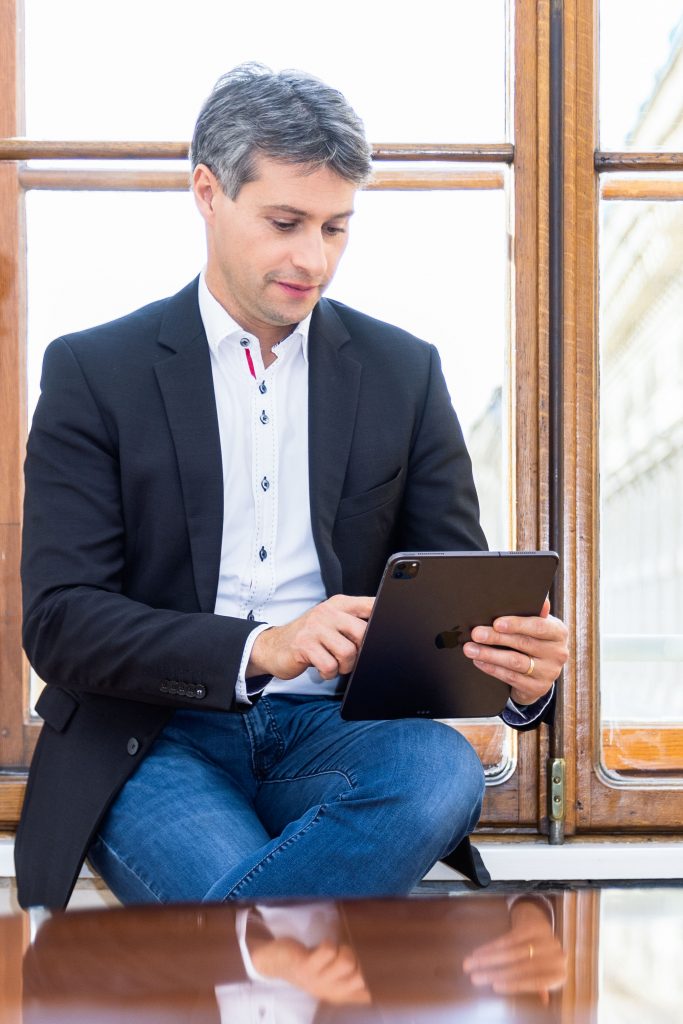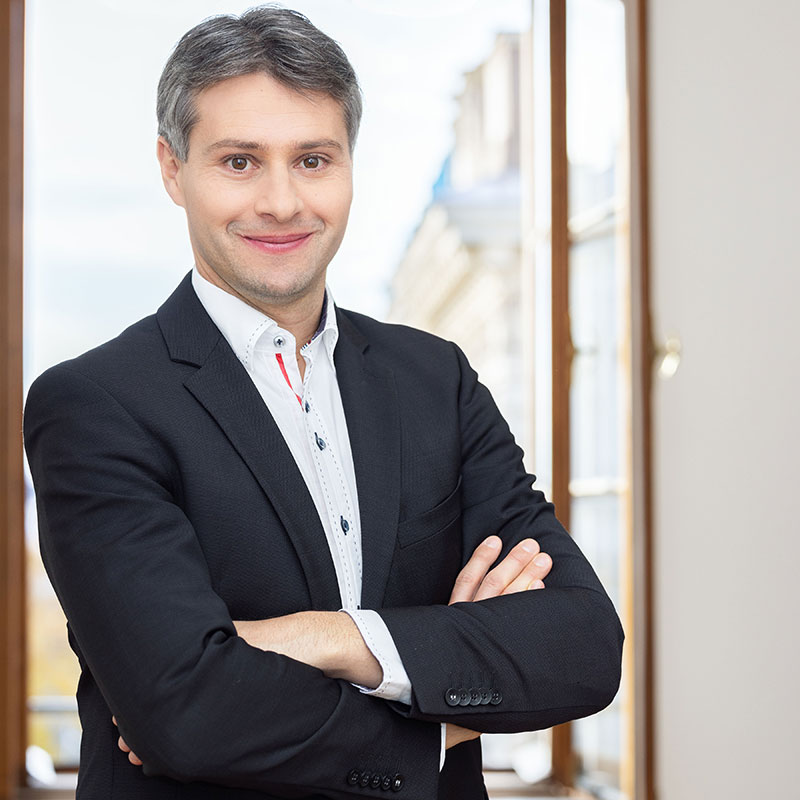Stefan is an Advisor, supporting the Institute and its Programmes in different phases. For the opening of a Europe-wide call for the most innovative democratic cities to join our network and become European Capital of Democracy, he has taken on the role of CEO in the newly founded ECoD non-profit organisation.
How would you describe your professional journey so far? What is your background, and what sparked your interest in currently working to support political innovation?
My professional journey started in the media (I always wanted to be a journalist!), but was always about innovative new forms of communication more than the “classic” media business. Whenever there was something new to be launched – screen-based infotainment in schools, companies and stores; a nation-wide newspaper or a citizens movement that turned into a political party, I was there.

What’s your favorite part of your job? Why is that?
My favourite part of my job is building teams, offices and processes. Seeing simple ideas take form and grow into (inter)national ventures is like a magic trick for me – I can’t stop to start over every 5-6 years, because that’s the phase I love the most. When everything’s possible and hardly anything works (like it should) – yet ;).
What is your first memory of politics?
My first active political memories are the foundation of the Liberal Forum (I ordered every brochure they had…) and the campaign for Austria to join the European Union. I also remember ordering the official Euro “starter kit” in 2002! I do also vaguely remember the scary months after the Chernobyl Accident 1986 and the unbelievable atmosphere when the Berlin wall came down in 1989.
What was your first paying job?
I used to work as soon as I was allowed and able to! Apart from summer jobs (at the postal office, in a supermarket and at the public works department…) and a four month intermezzo in quality control for a Semiconductor company before my year of military service, I earned my first money during my studies, working for magazines at a publishing house and as a freelance reporter for Austria Press Agency. My first real job was designing, producing and running a daily infotainment channel at schools for 60.000 young viewers per day.
Where do you see innovation happening in your work the most?
I grew up without a phone and a computer. Just imagine! EVERYTHING has changed, and I embrace these new possibilities, tools and networks since I went to high school. Applying these new developments to various fields, from society to companies and politics continues to be highly fascinating for me. Of course it’s also an imminent question of the right regulations, technical standards, capacity building, protection and safeguards.
Were you popular or unpopular in your school days, and what did you learn politically from this?
This is a strange story. I was a very introverted child, reading day and night (including school breaks). But somehow I also managed to have a growing cycle of friends, which really carried me through the darker phases. What troubles me until this very day is how teasing fellow pupils was part of everyday life – you might call it mobbing nowadays. So, what did I learn? The paramount importance of having a social network (and the devastating effects of being deprived of one), the protection of minorities (as well as their rights and freedoms) and to fight for the disadvantaged. Also, that a free and fair education is the best way to explore and develop the talents in all of us – and that the State should make this its utmost priority.
Which politician(s) should have more to say?
Not those with the loudest voice and the easiest answers (as they are almost always wrong), but seek to find solutions, build coalitions and focus on the things you can do and change. They are rather rare, but I would say Mette Frederiksen, Jacinda Ardern, Kaja Kallas or Claudia Gamon would make the shortlist easily.
What is the most political childrens’ book?
Animal farm, but it’s rather for teenagers… I also think that little I-Am-Me is underestimated in its effect on small kids. It helps them accept themselves as they are – unique & special.
What’s a piece of transferable knowledge that you have in your skill box that you would like to share with us?
I don’t know? That almost anything is possible, if you are ready to go all in and find the right people to join you?
What’s your idea of a perfect day?
Having a good time with friends and family, somewhere out there in the sun, earning a lovely meal and a nice cold drink by biking, hiking, walking or sightseeing when discovering new and interesting places =)

